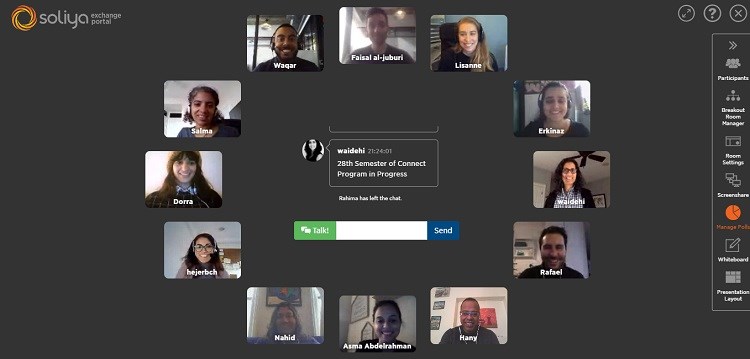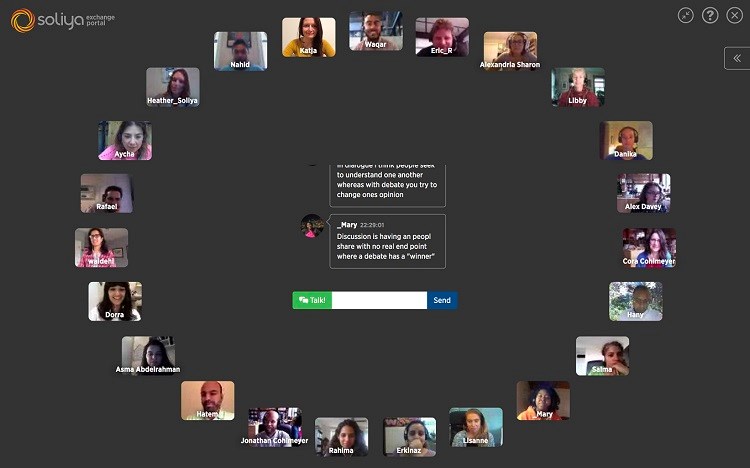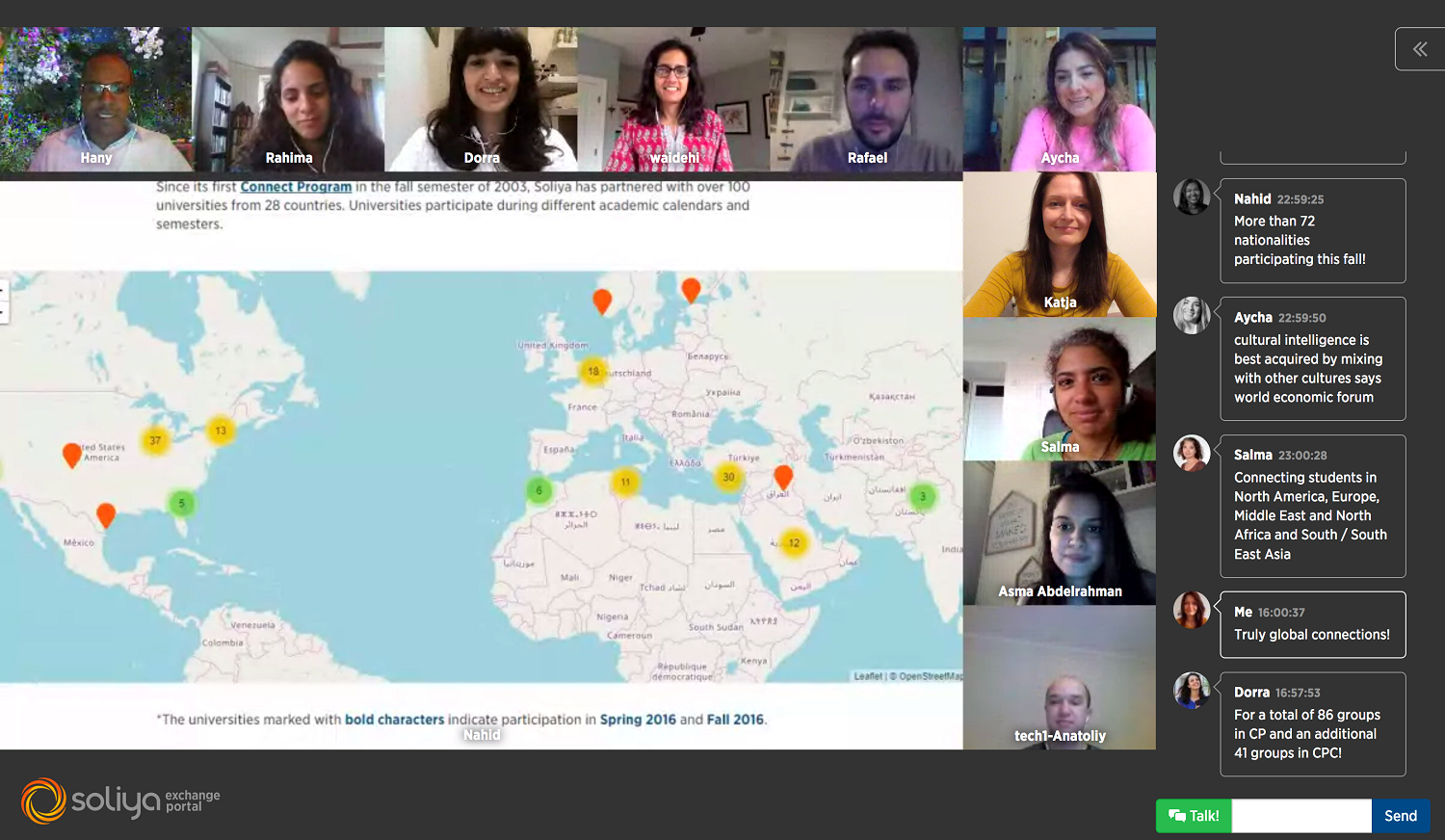
The digital world is exceptionally diverse where humans have clashing views and assumptive opinions about each other. Social media exposes young people to a world of difference, but it does not offer the tools and skills on how to engage with each other’s differences. There is often no safe space for inevitable difficult conversations.
One nonprofit organization, Soliya, used WebRTC to create a video-chat Virtual Exchange platform to fill that gap. The platform brings college aged students from across continents together in the presence of highly trained facilitators, so they can meet “face-to-face” to avoid misunderstandings, challenge stereotypes, and attach faces to cultures.

It’s Very Unique
It’s not traditional online training. It’s not meant for lectures or for one-on-one business type meetings. It’s built for group dialogues where conflict is anticipated among the participants. It is also designed and built with the flexibility to host varying models and scale of virtual exchange communications.
The platform focuses on key design elements including a unique “roundtable” discussion layout to mirror an in-person group discussion. This is a specific peacebuilding design where the users appear equal in size to help optimize power dynamics for conflict resolution.
The text chat, located at the center of the “table” is the heart of the discussion and supports cross-cultural communication in multiple languages.

The layout adjusts as people enter and leave the group discussion. Current meeting capacity is 24 users for audio and video, where an additional 6 users can be added in audio-only mode to increase the total capacity to 30.

When in presentation mode, the layout changes so that the heart of the screen is the presentation itself. It can accommodate 50 users for audio and video. The presenter can screen share their presentation, can show their own video feed, and can have an interactive whiteboard on top of what they are presenting.

The platform includes breakout rooms where facilitators send participants in small groups to discuss topics, and the facilitator goes between the rooms to observe dialogue without interrupting. Participants are able to re-enter their original discussion without assistance.
If 3 different types of group discussions, group chats, screen share and white boarding wasn’t enough for one platform, the facilitator’s can use a polling function to ask group questions, and the platform allows for students to have their own private chats as well.
Regardless of your Bandwidth and Geographical Location, Your Voice will be Heard!
Soliya targets participants who are diverse not only in terms of culture, geography and language, but also technical setup and network infrastructure. The platform supports multiple browsers and devices, and accommodates users with low network bandwidth. The platform modifies the video for users who have poor network connections or hardware, even switching them to an audio-only mode so that their voice can still be heard in the group discussion.
How did we Make this Happen?
With any custom and complex videoconferencing system there were technical obstacles to overcome such as compatibility, user bandwidth, quality of streams, and scalability. Creating the unique roundtable design for power dynamics was a complex feat in itself, let alone building a platform that enables other VE partners and training entities to use the platform as services for their own projects.
Soliya and LiveSwitch Inc. combined their individual expertise to build a platform that not only achieved the current goals, but provides the flexibility to develop a future roadmap with ease and unlimited possibilities of what we can achieve going forward.
Our Future: United Nations and AI
The new platform launched in September 2017, and it is already being utilized by organizations to execute their own brand of virtual exchange (VE) programs. We are talking to our partners from the higher education and peacebuilding communities, including the United Nations to understand and take stock of their needs.We are investigating the next generation of online learning and training such as virtual and augmented reality, and even the possibility of AI for the core of the platform.
This platform is ideal for educators, conflict resolution professionals, and organizations with active global networks. It provides social return, constructive communications online, and promotes peaceful relations among the countries of the world.
Learn more about Soliya and the work we are doing at https://www.soliya.net/.


